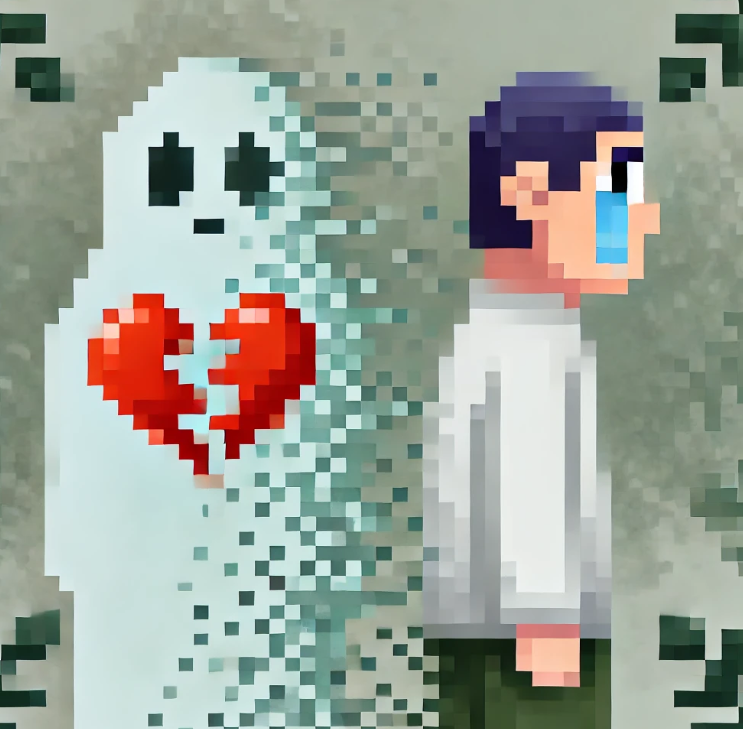
The Ghosting Effect: The Hidden Emotional Toll on Relationships
Imagine investing your time, emotions, and energy into a relationship, only to have the other person suddenly vanish—no explanation, no closure, just silence. For many, this is an all-too-familiar scenario. It’s called ghosting, and while the term may be relatively new, the emotional turmoil it creates is anything but. Ghosting is when someone abruptly cuts off all communication without warning, leaving the other person in the dark. This seemingly simple act can have profound and lasting effects on both the ghoster and the ghostee.
In recent years, ghosting has become more common, especially in the world of online dating. Yet, despite how frequently it happens, little attention has been paid to the emotional fallout for both parties involved. A groundbreaking study sheds light on the emotional experiences of those who have ghosted and been ghosted, providing a clearer picture of the real-world impact of this modern relationship dissolution strategy.
The Emotional Whirlwind of Ghosting
The study found that both ghosters and ghostees experience a mix of emotions, though the feelings vary significantly depending on which side of the equation you’re on. Ghostees, those who have been ghosted, reported feelings of sadness, loneliness, and hurt. These individuals often felt a blow to their self-esteem, control, and sense of belonging—important emotional needs we all share.
For ghosters, on the other hand, the emotional landscape looked a little different. While they did express guilt, they also felt relief at no longer having to confront their partner or the relationship. This combination of guilt and relief creates a complex emotional experience, one that often leaves ghosters with mixed feelings about their actions. They know they’ve hurt someone, but they also feel a sense of freedom.
One participant in the study summed it up perfectly: “It was a combination of relief and guilt. I was happy to not have to interact anymore, but I feel bad about how I went about it.” In contrast, a ghostee reflected, “I feel sad and helpless. I wasn’t able to talk to her and tell her how I felt. I was also devastated.”
These narratives highlight the emotional complexity that both sides experience, but for ghostees, the emotional damage often runs deeper.
Ghosting’s Impact on Fundamental Emotional Needs
At its core, ghosting isn’t just about a broken relationship—it’s about emotional rejection. The study found that ghostees experience a significant threat to their fundamental emotional needs, including self-esteem, control, belongingness, and meaningful existence. This makes sense; when someone is ghosted, they are left without answers, explanations, or closure. The abrupt end to communication leaves ghostees questioning what went wrong, often leading them to feel disconnected and insecure.
For instance, one ghostee shared, “I felt like an outsider, rejected, like I didn’t matter at all.” These feelings of being cut off from social and emotional connection are deeply painful, leading ghostees to experience a sense of non-existence within their relationships.
Ghosters, by contrast, don’t typically experience the same level of threat to these emotional needs. They may feel guilt or even sadness, but because they are in control of the decision to ghost, their sense of self-esteem and belonging remains more intact.
Why People Ghost
Given the emotional toll, you might wonder why people ghost in the first place. According to the research, ghosting is often viewed as an easier, less confrontational way to end a relationship. For some, it feels like a more convenient option than having a difficult conversation. However, this “easy” solution comes with its own set of emotional consequences.
Interestingly, ghosting seems to occur more frequently in relationships that lack depth or commitment, such as casual dating or online interactions. The more serious and long-term the relationship, the less likely ghosting is to occur, as deeper emotional bonds often necessitate more closure and communication. Still, even in long-term relationships, ghosting does happen, often when one partner feels overwhelmed, hurt, or disrespected.
One ghoster explained their decision: “I just couldn’t deal with it anymore. I didn’t want to hurt them, but I also didn’t want to deal with the confrontation.” This reasoning is common among ghosters who see avoidance as a way to minimize conflict, though the emotional damage done to the ghostee often outweighs the temporary relief the ghoster might feel.
The Technology Factor: How Modern Communication Fuels Ghosting
Technology has undoubtedly played a role in the rise of ghosting. In today’s digital world, where many relationships are maintained through texting, social media, and dating apps, the barriers to communication are low. But the ease of cutting off communication is also lower. It’s far simpler to block someone’s number or stop responding to messages than it is to face them in person for a difficult conversation.
This shift in how we communicate has created an environment where ghosting can thrive. In fact, studies suggest that over one-third of rejections on dating apps are done via ghosting. While technology makes it easier to initiate connections, it also makes it easier to end them abruptly, often with little regard for the other person’s emotional well-being.
The Long-Term Effects of Ghosting
For many ghostees, the pain of being ghosted doesn’t end when the relationship does. Because ghosting leaves so many questions unanswered, ghostees often struggle with feelings of unresolved grief, self-doubt, and anxiety long after the ghosting incident occurs. They may replay the relationship over and over in their minds, trying to pinpoint what went wrong, only to be left with a sense of emotional limbo.
One ghostee described the lasting impact: “It wasn’t just the end of the relationship that hurt. It was the way it ended. I was left wondering if I even mattered to them.” This sense of emotional limbo can be difficult to escape, as ghostees are often left without closure or the opportunity to heal fully.
For ghosters, the long-term effects may not be as immediate, but the guilt they feel can linger. Over time, many ghosters begin to question whether ghosting was the right decision, and some even express regret for not handling the situation differently.
Read More.
Check out this great article from Nautilus on ghosting
Join the Conversation
Have you ever been ghosted or ghosted someone? How did it make you feel? Share your experiences below and help spark a conversation about how we can communicate better in our relationships.
Unlock Science Secrets:
Discover revolutionary research and innovative discoveries with ‘This Week in Science’! Designed for educators and science lovers, our free weekly newsletter offers insights that can transform your approach to science. Sign up now and deepen your understanding and passion for science. If you liked this blog, please share it! Your referrals help This Week in Science reach new readers.



